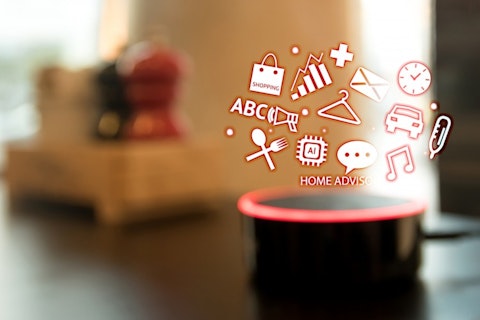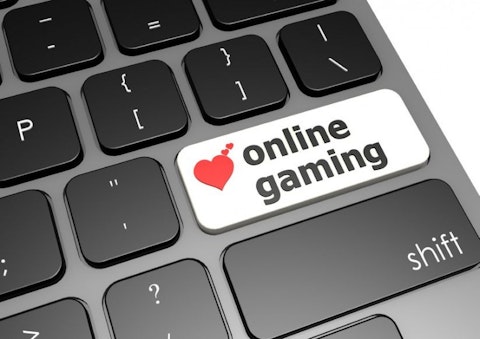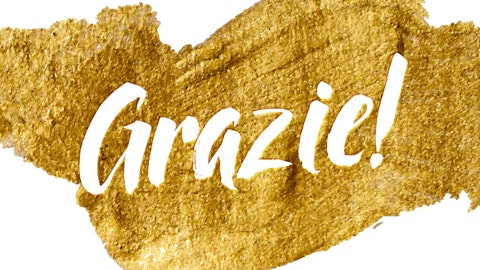For almost a decade, blockchain has come to our attention thanks to Bitcoin, the magical cryptocurrency that is now breaking record after record, reaching values that no one thought possible as recent as last year, but there are many uses to the technology behind Bitcoin, such as these blockchain non-financial use cases and business opportunities.
The first time someone thought of a cryptographically-secured chain of blocks was back in 1991. In 2008, someone (or someones, as it is believed a group may have been involved) hiding behind the name of Satoshi Nakamoto implemented the notion into Bitcoin, serving as a public ledger for all transactions. Bitcoin became the first cryptocurrency in the world and the first currency that didn’t need a trusted authority to overlook everything, or even a central server.
Slowly, but surely, the blockchain technology is starting to be seen as a solution for many industries. Why? Because it’s the perfect ledger – it can’t be tampered with and it keeps an exact history of what happened and when, reserving one block for each transaction.

Copyright: Elnur / 123RF Stock Photo
There is a growing number of big companies using blockchain. For instance, IBM, Nestle, Unilever, Tyson Foods, Dole Food, and several more will run trials to explore how the blockchain technology can help track food supply chains and to improve safety.
Another area that can do quite well with an infusion of this technology is retail, but there is currently a rather low number of retailers using blockchain. Experts, however, believe the number will grow consistently in the next few years as adoption rate grows. Blockchain in the retail industry makes sense given the constant need to deal with the supply chain and the many transactions taking place day in and day out. It has been noted, of course, that Blockchain is disrupting the freelance industry, as well.
Blockchain technology, however, is and will continue to be, the star of the financial industry. Therefore, there’s no surprise we see a continually growing list of banks that use blockchain or that are planning to do so. IBM estimates that some 15% of the world’s banks are using this type of technologies. Deutsche Bank has such plans, while Russia’s Sberbank is already piloting such transactions. If you’re interested in investing, however, you can check out these 12 best cryptocurrency and blockchain stocks to buy
That being said, as the list of companies using blockchain technology grows, we thought it would do us all some good to check out some blockchain non-financial use cases and business opportunities.
13. Media and content distribution
Media companies are already implementing blockchain technology left and right. For instance, content distribution platform Decent will launch a new tool to allow writers and content creators to receive immediate payment after spreading their works via blockchain. Ad purchases on TV networks can also be done with the same blockchain technology.
Furthermore, music distribution, for instance, such as the one done by Bittunes, gives power to artists and fans alike, with each of them earning Bitcoin automatically, following a purchase. In a way, the usage of blockchain technology in these areas is related to finance as it invovles a monetary transaction, but we thought it might still be worth including among blockchain non-financial use cases and business opportunities.

Antonio Guillem/Shutterstock.com
12. Authorship
A major problem the Internet has brought forth is the concept some people have that anything online is free, including images, videos, and other digital creations. Therefore, they take pictures and use them for their own, without mentioning who the author was. In fact, in many cases, the trail is so blurred that even if someone wanted to give credit where credit is due, that is nearly impossible. Blockchain would fix the issue if artists distribute their art via blockchain, with a unique ID attached to it.

Who is Danny/Shutterstock.com
11. Anti-Counterfeiting
Another possibility of blockchain non-financial use cases and business opportunities involves anti-counterfeiting measures. In a similar manner to the one mentioned on the previous page, blockchain could help prevent the counterfeit of digital assets by providing definitive proof of ownership, thanks to the ID attached to a certain work of art, photograph, or whatever else.

Copyright: smileus / 123RF Stock Photo
10. Social networking
Sure, you may feel like we have enough social networks, especially with Facebook leisurely bragging about its 2 billion daily users, but that may not be quite so. The future, many believe, is with decentralized social networks, where user data can’t be stored or controlled by any particular company, thus providing users with a heightened level of privacy. Such social networks are already in the works, such as Datt, or Synereo.

Rawpixel.com/Shutterstock.com
9. IoT
There are so many Internet of Things devices now, that something needs to be done. There are quite a few IoT sectors that need fixing where blockchain could add value. For instance, one that is logical and easy to tell is the tracking of the location of goods as they are shipped. Another would be, for instance, for health-related devices. The data these devices collect is particularly sensitive, so blockchain would ensure the information stays private and that any data exchange is encrypted.

Zapp2Photo/Shutterstock.com
8. Supply chain
Another possibility among blockchain non-financial use cases and business opportunities is supply chain. Keeping a strict ledger that cannot be altered and cannot be lost of every transaction is perfect for any business that needs to keep track of goods as they move from one supplier to the other. The blockchain can be used to create new entries for every good that comes in on a ship, for instance, and then keep track of where it ends up, how it ends up there and more. There are already several companies using blockchain for their supply management.

Pixabay/Public Domain
7. Governance
There are so many ways blockchain can be used by a country’s government, whether we’re talking about national or local levels. Population records such as birth and death certificates, marriage licenses, property records, and so on. Authorities often have a hard time keeping everything in order, and we’ve seen many instances with people wrongly declared dead, taxes being filed to the wrong individuals and so on. In this way, governance represents one of the best blockchain non-financial use cases and business opportunities.
Assigning everyone their proper taxes would also work better with such a system in place, eliminating human error.

CursedSenses/Shutterstock.com
6. Voting
Sure, voting could very well fall under “governance” but it’s such an important issue that it deserves its own entry, right? Voter fraud would be a thing of the past all over the world if blockchain were involved. Once filed, the votes cannot be changed, the ledger cannot be hacked, and no one can know who voted what, thus maintaining the anonymity level so desired by the democratic process. Furthermore, individuals could check if their vote was recorded correctly and counted accordingly.

Alexandru Nika/Shutterstock.com
5. Reputation verification and ranking
Blockchain technology can be used to assess the reputation and ranking of both individuals and organizations. This would permit the creation of a reward system based on reputation, something that some platforms already offer. Ironically or not, this system would fit well with China’s new Big Brother plans where everyone’s actions would be taken into consideration to grant them a trust index, from individuals to companies, which, in the end, could even affect people’s chances of getting a loan, for instance.

Copyright: bialasiewicz / 123RF Stock Photo
4. Data management
On the fourth spot among blockchain non-financial use cases and business opportunities is data management. Whether we’re talking about companies or governments, data management is difficult at times, especially given the large quantities of information that need to be processed. Well, there are already businesses such as Factom that offer blockchain data management, simplifying records management, processes and more. Furthermore, the blockchain technology provides an added sense of security and privacy.

Andrey_Popov/Shutterstock.com
3. Smart contracts
Another thing that could be extremely useful for many companies are smart contracts which are made possible by the blockchain technology. For instance, once you make a payment to a third party, you may not always trust that said third party will complete the job you are paying them to do. So, the contract has a clause that says the payment is released only when the job is confirmed as complete. That condition placed on the payment being made could be the confirmation that a delivery was made, for instance, or perhaps even a GPS location signal.

Pixabay/Public Domain
2. Gambling
Whether you’re a fan of gaming or gambling is beside the point because there are millions upon millions of people who are. Blockchain can be used to record all gambles made, release payments, and generally keep track of everything that needs to be recorded. There are even online games built entirely in the blockchain, such as Etheria where every decision players make is registered in the ledger.

Copyright: tang90246 / 123RF Stock Photo
1. Healthcare
Medical records are considered to be sensitive information that just a few people have access to. Theoretically, only you and your doctor should have access to this data, but realistically that’s not always what happens. Furthermore, we’ve seen quite a few hacks in recent years involving clinics, exposing private information about patients. Sometimes, these patients were even blackmailed with information found in those files.
Health data could very well fit in with the blockchain technology, which makes it suitable for blockchain non-financial use cases and business opportunities. Your age, gender, medical history, and more would be filed into a block, completely encrypted. Furthermore, in the future, medical devices used to check up a patient could file the information automatically, which can be seen by the doctor immediately, or by other doctors authorized to check it.

Chaikom/Shutterstock.com
That being said, there are countless ways blockchain can be applied to industries from all over the world in order to make data exchange safer and for all data to be easier to manage. Hopefully, you enjoyed our 13 blockchain non-financial use cases and business opportunities.





